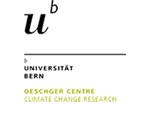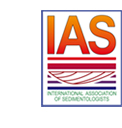Plenary Speaker - Martin Jones

Downloads
> View the online video with slides
> Download the powerpoint presentation (ppsx)
Biography
Prof. Martin Jones
Department of Archaeology
University of Cambridge
mkj12@cam.ac.uk
Martin Jones has been Professor of Archaeological Science at Cambridge since 1990, where he leads a group researching the deep history of foodways and agriculture through a range of bio-archaeological and genetic methods. His two principal current research interests include the origins of modern food-sharing behavior, and the spread of agricultural resources in both directions across prehistoric Eurasia. Over the past five years he has worked with colleagues at the Chinese Academy of Social Sciences and PKU to study agricultural origins and spread from North China. Back in the UK, he has also chaired a number of panels involved with the promotion and resourcing of archaeological science for the NERC, AHRC and Wellcome Trust. His recent books include The Molecule Hunt: Archaeology and the Search for Ancient DNA and Feast: Why Humans Share Food.
Abstract: Food economics in (pre-)historical times
Contemporary food economics lean heavily towards the food species that currently dominate our food chain, in particular three grass species that equate with over half the biological energy moving through that chain. This economic emphasis upon the ‘big three’ - bread wheat, rice and maize - is mirrored by a corresponding emphasis on scientific research effort and crop breeding. The three species consequently figure centrally in discussions of future food security and climate change.
In the deeper, millennial history of agriculture, their predominance in this scale is relatively recent, largely post-dating the 17th century Columbian Exchange of Old and New World crops. For much of prehistory, they were consumed alongside a range of equally significant grain and tuber crops. Among these other food sources were taxa with ecological attributes quite different from the relatively demanding ‘big three’ of the modern world.
By looking back in time through the archaeological record pf crop plant plants, it is possible to elucidate the evolutionary ecology of a range of hardier food sources that played a considerable role in environmental extremes in the past, and may consequently offer potential benefits in the environmental challenges of the future.
In this presentation, I shall explore the archaeology of prehistoric energy foods, with particular reference to those taxa that exhibit ecological resilience in circumstances of seasonal and hydrological stress, in the context of changing cultural patterns and climatic histories.















